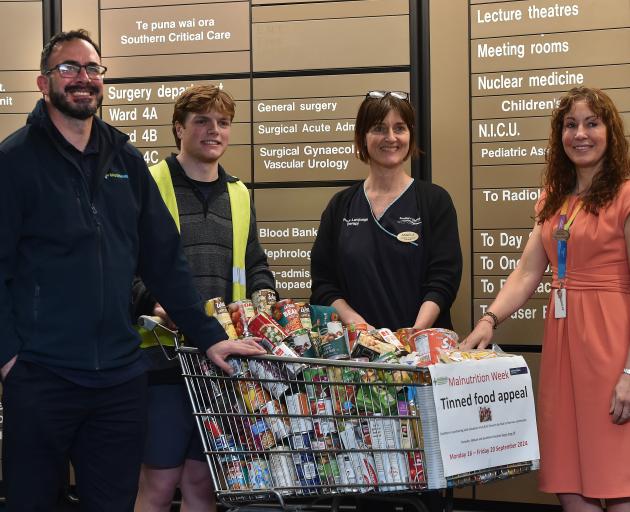
Health New Zealand Southern Allied Health science and technical director Jenny Rakasz said the initiative was part of Nutrition Week, which raises awareness about the prevalence of malnourishment in many New Zealand homes.
"We know there is so much food insecurity right now, so we were wanting to do something positive about the issue."
Staff at Dunedin Hospital, Wakari Hospital and Southland Hospital were encouraged to give tinned food items, which will go to the Salvation Army in Invercargill and St Vincent de Paul in Dunedin. About 500 items have been collected in total so far.
"The initiative seemed to bring everyone together. To see a smile on people’s faces was really rewarding," Ms Rakasz said.
A 2022 study by Queensland’s Griffith University — backed by Dietitians New Zealand and Dietitians Australia — estimated up to 63% of people in Australasia were at risk of developing malnutrition in the community, she said.
The study found that, while the problem was most prevalent among people aged 65 and over, it also affected younger people with acute or chronic health conditions.
Other factors leading to malnutrition were often economic, Ms Rakasz said.
St Vincent de Paul driver Philip Yeardley said as each food parcel usually contained four cans of food, enough was collected to serve hundreds of families for the week.
"I know the impacts of delivering this food to families — to be able to give someone food to survive is the greatest gift you can give.
"Normally, winter is our busy season, as people prioritise heating and electricity over buying food. It should die down a bit as we head into warmer temperatures, but there’s always a need to fill."
He hoped the initiative would take place again next year.












